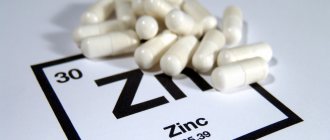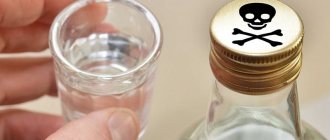Holidays and feasts are not complete without eating fish dishes, in particular herring.
loading…
Eating herring under a fur coat is especially dangerous during the hot season; it is the reason why patients are admitted to medical institutions with acute food intoxication.
To prevent such an illness, it is worth learning the basic methods of precaution and assistance to the patient.
Causes of herring poisoning
Salting is a popular way of preparing fish. Despite this, poisoning with the finished product is becoming common for the following reasons:
- The fish was prepared with serious violations of technology. As a result, the salting time is reduced and poisoning from salted herring is possible due to the development of pathogenic microorganisms in it. Due to consumption of a contaminated product, a person develops intoxication.
- The fish was not stored correctly before cooking or after salting. Once the product is eaten, the person will be negatively affected by the toxins and their health will deteriorate.
- The use of low-quality raw materials is one of the main reasons. An unscrupulous manufacturer may do this. If stale fish is used, it is seasoned with salt to achieve the desired taste characteristics. However, such food is already dangerous for people.
- Add hexamine when preserving the product. Chemical reactions lead to the release of potentially dangerous formaldehyde. Currently, many unscrupulous herring producers add methenamine, despite the obvious risks.
Only a high-quality fresh product will be useful.
Poisoning with canned fish is as common as poisoning with salted herring, because it is caused by the consumption of low-quality or expired products.
History of origin
Surstromming is Baltic herring salted (fermented) in a special way. The history of the origin of this fish delicacy goes back over five hundred years. In those days, salt was at a high price in Sweden, and one day on one of the islands of the Gulf of Bothnia there was not enough salt to salt fish. As a result, the herring fermented in the tub, but there was a brave soul who still dared to try it - either it was a pity to throw away the fish, or, indeed, the person was hungry.
As a result, after eating the fermented herring, the daredevil remained alive, and in Sweden a tradition and even a holiday dedicated to surströmming appeared. According to tradition, established by royal decree, it was possible to open jars of pickled herring only on the third Thursday of August. This decree was canceled only in 1998.
Symptoms of herring poisoning
If the product contains pathogenic bacteria, the benefits become impossible. Because of them, the following symptoms of herring poisoning appear:
- Colic in the abdominal region. The severity of sensations may vary.
- I often feel sick after eating herring. There may also be single or multiple vomiting. This symptom confirms poisoning, because nausea does not appear just like that.
- Another obvious sign is diarrhea. Sometimes stool exceeds 10 times a day, resulting in dehydration of the body.
- When intoxicated, the oral mucosa becomes dry. For this reason, after eating herring you feel thirsty.
- Convulsive twitching of arms and legs, muscle spasms. They are often accompanied by severe pain.
- Panic attacks. The person notices increased anxiety.
When eating rotten or improperly cooked fish, classic symptoms of poisoning are observed. Such signs also appear if a person eats a large amount of very salty fish.
It is for these reasons that when asked whether one can be poisoned by herring, the answer will definitely be in the affirmative. In severe cases, there is a whole range of symptoms associated with the gastrointestinal tract and improper functioning of the nervous system.
Dehydration of the human body is especially dangerous. Initially, the brain reacts to a lack of water. A person shows apathy to surrounding circumstances, acts sluggishly, after which problems with the skin are noted (dryness increases, tone disappears), urination is disrupted or completely stops.
First aid for herring poisoning
First aid is required if initial symptoms of poisoning appear. If first aid is not provided in time, the risk of death increases.
Be sure to take the following actions:
- Causes forced vomiting. The main task is to remove toxic substances from the body. Otherwise, they will spread throughout the human body. It is also necessary to rinse the stomach. This procedure is carried out several times until clean wash water appears.
- The patient must be given fresh water. This is also required to prevent dehydration.
- A small amount of laxative is also required. This will remove all dangerous substances from the body.
- An adult can take a small amount of aniseed vodka or warm wine. This applies to folk remedies.
After a person has developed herring poisoning, it is important to carry out a full course of treatment and adhere to a special diet.
Treatment of herring poisoning
Therapeutic measures are required. The amount of assistance provided depends on the severity of symptoms.
An adsorbent must be prescribed. Smecta, Sorbex, activated carbon, Entorosgel are often used. When taking the medication, follow the instructions for the drug (for example, black coal is taken in the amount of 1 tablet per 10 kilograms of the victim’s weight).
In severe cases, hospitalization is recommended, since there is no possibility of effective home treatment. In the hospital, doctors rinse the patient's stomach again using a tube. The main task of such washing is to remove toxic substances from the intestines. Additionally, the person takes a saline laxative.
To improve well-being and eliminate signs of intoxication, glucose, sodium chloride, and Ringer's medicinal solution must be administered intravenously.
Prevention
Basic preventive measures for poisoning:
- choosing highly salted herring, which needs to be soaked in water before use;
- it is important to know how to understand that the herring has gone bad: cloudy eyes, mucus on the scales (stale product is especially dangerous);
- it is important to refuse fish that have had their heads cut off, as they are potentially dangerous;
- It is advisable to consume the product within 24 hours, maximum 10 (when stored in the freezer);
- purchasing the product is possible only in a specialized store.
Herring is undesirable for diarrhea and other gastrointestinal problems, as it increases the risk of allergies. In other cases, quality and freshness must be taken into account to prevent poisoning.
Is it possible to get poisoned by herring? This question is very relevant today, since this type of fish can very often be found on both festive and everyday tables. It turns out that herring intoxication is a fairly common occurrence, and it occurs mainly due to the fact that the product is not “first fresh.”
Review of foods that cause diarrhea
The table below is compiled taking into account the diet “Table No. 4”
| Products | Allowed to eat with diarrhea | Foods that cause diarrhea |
| Flour and bakery products | Wheat bread, croutons, vermicelli | Rye bread, sweet flour food |
| Meat | Boiled or steamed lean meat (rabbit, turkey, chicken) | Fatty meat (pork). Meat dishes prepared by frying |
| Fish | Boiled or steamed low-fat fish (cod, pike perch) | Fatty fish (salmon, flounder). Fish dishes prepared by frying |
| Egg dishes | Steamed omelette | Fried and soft-boiled eggs |
| Vegetables | Seasonal vegetables grown in your own garden |
Vegetable dishes (boiled vegetables, puree)
You can't eat raw vegetables
Causes of intoxication
Salted fish is a popular snack option and an attribute of Russian cuisine. Many fishermen use salting as the main method of preparing fish.
But there are situations when poisoning occurs after eating herring. This may be due to the following reasons:
- Incorrect salting technology. If an insufficient amount of salt was used during the preparation of fish, then the salting time is reduced, but unsanitary conditions will become protection for pathogenic microorganisms that were in the fish during its life.
- Use of low-quality raw materials. Today on the market you can see unscrupulous manufacturers who do not want to throw away their goods, even if the time has come. They begin to salt the already slightly spoiled fish.
- Sometimes you want to eat herring so much that people of their own free will want to complete the process of preparing it. The most important indicator of product readiness remains sunken eyeballs. If you eat poorly aged herring, this will lead to pathogenic microorganisms entering the human body.
What foods should you avoid?
The following foods cause diarrhea:
- fast food, fast food;
- fatty meat, meat by-products (liver, heart, kidneys);
- canned fish, meat, vegetables;
- mushrooms;
- nuts;
- industrial sauces;
- legumes (beans, peas);
- spices (horseradish, mustard);
- alcohol, coffee.
When preparing meals, do not use foods that cause diarrhea.
Buckwheat and rice porridge are allowed for diarrheal conditions. The use of mushrooms, beans, and canned vegetables as a side dish for porridge is prohibited.
Vegetable dishes and lean boiled meat are suitable as a side dish for porridge.
Symptoms of herring poisoning
Toxic herring, which has accumulated poisons inside itself, leads to the development of a number of symptoms of intoxication. In this case, signs of herring poisoning appear almost immediately. And they are as follows:
- acute pain in the peritoneal cavity, colic in the intestines;
- feeling of nausea, vomiting;
- diarrhea;
- dry mouth, which causes increased thirst;
- spasms and cramps in muscles;
- panic attacks.
Rotten, insufficiently processed fish can influence the development of a paralytic form of intoxication. In this case, the symptoms make themselves felt 30-60 minutes after taking the product and are accompanied by:
- increased sweating;
- vomiting;
- diarrhea;
- constant thirst.
Symptoms
The clinical picture of poisoning with low-quality herring will vary depending on the type of intoxication.
If a person has a cholera-like form, then the symptoms of poisoning appear after 2–4 hours and look like this:
- sharp painful sensations in the abdomen;
- colic in the intestines, reaching cramps and spasms;
- frequent vomiting;
- diarrhea;
- dry mouth, accompanied by excruciating thirst.
Poisoning leads to dehydration, which affects the brain. Dizziness and pain in the temporal region of the head, panic, excitement appear, followed by lethargy and weakness. A person’s skin becomes dry, diuresis decreases (there is a high risk of stopping it completely).
First aid for eating
No matter what symptoms of herring poisoning are detected, it is important to immediately seek help from a doctor. Paralysis of the limbs, acute lack of water, sharp pain in the abdomen - all this should alert a person. If proper assistance is not provided to the victim in time, death can occur.
If a person is poisoned by herring, first aid includes the following action plan:
- Force a gag reflex.
- Give the victim a glass of water.
- If there is a laxative nearby, give it to the victim.
- In case of herring poisoning, aniseed vodka helps a lot. If you have regular alcohol, you can use it to rub your limbs.
- In order for vomiting to occur, you need to give a person potassium permanganate dissolved in water.
Prevention of fish poisoning
If you follow simple preventive recommendations, you can protect your body from herring poisoning:
- Before you buy fish, understand the degree of its freshness. To do this, you need to look at the expiration date and evaluate the appearance of the products. If its eyes are cloudy and there is mucus on its scales, then the fish should not be used.
- Some manufacturers, in order to disguise the staleness of the product, cut off the head of the fish. Such a herring should immediately arouse suspicion.
- Store herring in the freezer or refrigerator separately from fruit and meat.
- Purchase herring only from certified points of sale that have been inspected by the sanitary and epidemiological station.
- After purchasing herring, try not to keep it in the refrigerator for a long time. The product must be consumed within 24 hours.
Herring poisoning is a dangerous condition that occurs after eating improperly prepared or stale fish. In severe cases, the patient requires urgent hospitalization: due to intoxication, rapid dehydration of the body occurs, which threatens health problems, especially in the elderly and children. Let's consider the causes and symptoms of poisoning, why intoxication occurs, what to do in case of poisoning and features of prevention.
Pickling onions
Of course, what would a herring be without onions? And for skeptics, I’ll say that pickled onions are a dish that helps those who don’t really like the consequences of eating regular, non-pickled onions to reach a compromise with their conscience. And again, I’ll say that this dish is prepared in 5-10 minutes (including searching for an onion in the vegetable drawer of the refrigerator), so don’t be intimidated by the complexity of the process.
Take an onion of any size, peel it and cut it into half rings. Place in a bowl with an inert coating, add a spoonful of salt and sugar and pour in 50 milliliters of ordinary vinegar. Then we crush the onion with our white hands (being careful not to tear it into rags). After this, leave the onion to marinate for 5 minutes while we clean the herring.
Photo: pixabay.com
Causes of herring poisoning
In cooking, salted or smoked herring is more often used: the fish is eaten as a separate dish or added to salads, for example, in “shuba”. Common causes of food poisoning:
- Violation of product preparation technology. For example, the curing time is reduced, so pathogens have developed in the meat. After entering the gastrointestinal tract, the bacteria led to the development of severe intoxication.
- Using stale fish. Unscrupulous manufacturers hope to achieve the desired taste by smoking or salting.
- Improper storage of the finished product. If fresh fish is properly salted, subsequent violations of storage or transportation lead to spoilage of the product.
- Use of methenamine. It is an antiseptic that extends the shelf life of the product. The use of the substance in the food industry is prohibited: as a result of the chemical reaction, toxic formaldehyde is released.
You can also be poisoned by canned fish if the manufacturing technology is broken or the expiration date has passed. When purchasing semi-finished products, it is important to pay attention to the date of manufacture and the appearance of the can. If there are traces of rust on the container and the lid is swollen, they refuse to purchase the product.
Symptoms of intoxication
Signs of herring poisoning are pronounced and appear immediately after consuming a low-quality product:
- severe cramping pain in the abdomen;
- nausea;
- vomiting (single or repeated several times);
- diarrhea (sometimes up to 10 times a day);
- feeling of dry mouth - the patient is constantly thirsty;
- in more severe cases, muscle spasms, involuntary twitching of limbs, and panic attacks are observed.
At the first signs of intoxication, the patient is given first aid and a doctor is called. If a child or an elderly person eats low-quality fish, the victim is immediately taken to the hospital: the consequences of poisoning are irreversible.
Providing first aid for poisoning
If poisoning is suspected, first aid is provided to the victim: fewer toxins will pass from the gastrointestinal tract into the blood, and the patient will recover faster and avoid health problems.
Important! In some cases, symptoms of an allergic reaction occur simultaneously with poisoning. Antihistamines should not be given without a doctor's prescription: medications worsen the condition.
Actions before the ambulance arrives:
- induce artificial vomiting with a weak solution of potassium permanganate;
- perform gastric lavage;
- give the patient a little laxative to cleanse the intestines;
- provide the victim with drink to replenish the water-salt balance;
- Rub your feet and hands thoroughly with alcohol—anise vodka is especially good;
- Place the victim in a quiet place to reduce discomfort.
Treatment methods
In case of poisoning, it is better to abandon traditional methods of treatment: it is unknown how a weakened body will react to infusions or decoctions of herbs and plants, which are potential allergens and can aggravate the disease.
Methods of treating patients at home:
- provide rest, give plenty of fluids;
- to remove toxins, sorbents are used, for example, activated carbon or Enterosgel;
- For abdominal pain, antispasmodics are given.
Video: let's talk about the middle
Read further:
Rehabilitation after a heart attack, prevention of new attacks and care
Pharmacy remedies and folk methods used after mosquito bites
How to cleanse your body of parasite toxins
How to quickly induce vomiting after eating at home for weight loss
Is it worth getting coded for alcoholism?
Article rating:
( 1 ratings, average: 5.00 out of 5)
Share with friends:
You may also be interested in:
Mussel poisoning - what to do, symptoms and treatment methods
Overdose and tea poisoning - symptoms, treatment methods
Human potato poisoning: first aid and treatment methods
What to do if you overdose on coffee
Complications and consequences
People choose fish lightly, believing that intoxication will pass quickly and will not cause health problems. This is a misconception - the consequences of intoxication can be severe:
- inflammation of the pancreas - constant pain and the need to adhere to a strict diet, increased risk of developing diabetes;
- persistent dehydration is dangerous for weakened people and children: irreversible changes occur in the body within a few hours;
- renal failure - due to the abundance of toxins, the kidneys cannot cope with the increased load and cease to function normally;
- toxic shock is a fatal condition: the patient experiences tachycardia, increased blood pressure, and impaired consciousness.
In severe cases, fish poisoning leads to coma and death. Timely medical assistance will help avoid tragic consequences.
Precautionary measures
Following the advice will help you choose fresh and high-quality fish, significantly reducing the risk of poisoning of varying degrees of severity.
Precautionary measures to help reduce the risk of poisoning from fish products:
- you need to buy herring only in trusted places, with high traffic and proper storage conditions;
- it is better to purchase fish from an already familiar manufacturer;
- preference should be given to a highly salted product - the fish can be soaked in water;
- When salting or marinating yourself, use only fresh fish and carefully adhere to the technology;
- do not purchase semi-finished or finished products if the fish does not have a head;
- if the herring has cloudy eyes, the fish is covered with sticky mucus and has an unpleasant odor, the product should be thrown away immediately;
- Avoid using the product if you have gastrointestinal diseases or hypersensitivity to fish protein.
Recipe
The technology for preparing Swedish pickled herring is as follows: small Baltic herring, caught in the spring before spawning, is soaked for several days in brine (a highly concentrated saline solution). This allows fat and blood to be removed. After which, for two months, the fish is rolled into barrels with a less concentrated salt solution, in which it begins to ferment and acquires a specific softness and a corresponding unbearable smell.
After two months, around July, the fermented herring is rolled into cans, and the fermentation process continues there. By the way, cans with surströmming are easy to identify on the counter: due to the high pressure created inside them, canned food acquires a noticeable round shape. Fermented herring is produced mainly in the northern coastal regions, in the province of Norrland.
Prevention of poisoning
To protect yourself and your loved ones from severe intoxication, it is important to adhere to the following rules:
- use only fresh product for food;
- Do not refreeze herring;
- store the product in a closed container, away from fresh meat and poultry;
- Avoid eating herring if blood is visible on the cut of the salted or smoked product;
- eat fish within 24 hours, if the product is used in salads containing onions - even faster.
Preventive measures will reduce the risk of poisoning, but will not completely protect against intoxication. When the fish does not inspire confidence, you should avoid eating the dish.
Proper nutrition or diet
During the recovery period after poisoning in adults and children, it is necessary to adhere to proper nutrition. Fatty, fried, smoked foods are excluded from the diet. It is recommended to avoid sweets, alcoholic drinks, coffee and strong tea.
On the first day, you need to give up food completely and maintain a drinking regime. From the second day, it is allowed to consume vegetable soups, unsweetened compotes and fruit drinks, porridges with water, and baked fruits.
It takes at least a month to follow the diet to achieve the desired result.











